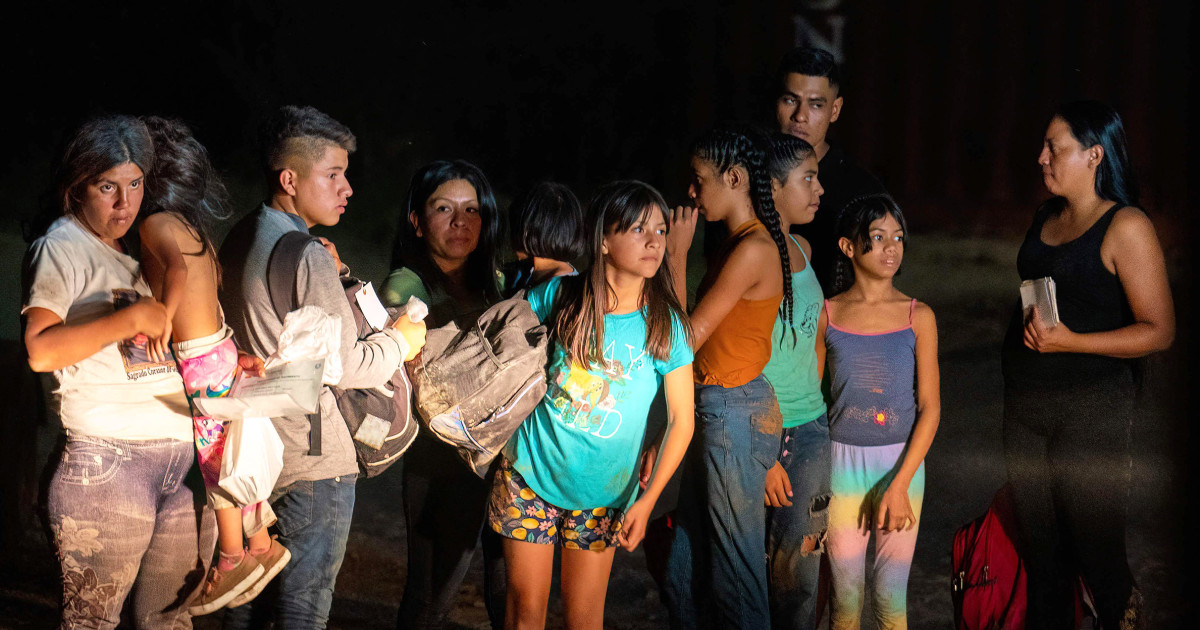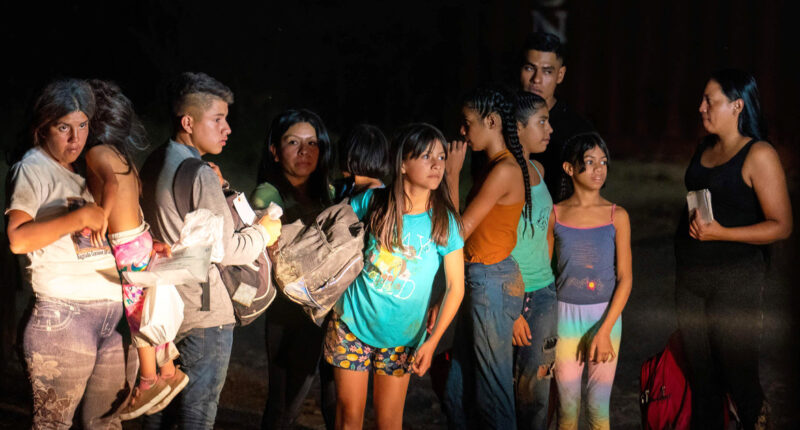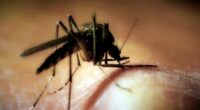
An abandoned tea kettle with discarded cups and sugar. A long-forgotten blanket draped over a spiny cholla cactus.
These are just some of the items volunteers and immigrant rights advocates have found in the unforgiving desert separating the United States from Mexico, where an untold number of people seeking asylum pass through every day.
Experts say increased temperatures and a persistent heat wave in the Southwest has exacerbated an already difficult immigration crisis and endangered the lives of migrants who often undertake long and perilous journeys without food, water or sun protection.
“People just don’t know what they’re up against,” said Laurie Cantillo, board member and volunteer for Humane Borders, a nonprofit group that sets up water stations and delivers supplies to people attempting to cross into the U.S. through remote and unforgiving landscapes.
Oppressive heat has blanketed much of the southern half of the United States, from Arizona to Florida, for nearly two weeks, bringing early season triple-digit temperatures to millions of people on both sides of the border.
Texas, which has been sweltering under an intense heat wave for much of June, was considered among the hottest places on earth earlier this week but is expected to cool slightly over the weekend.
The scorching conditions have been blamed for at least 13 deaths in the state, health officials said.
When Cantillo first arrived in Arizona’s Organ Pipe Cactus National Monument last week, temperatures topped 115 degrees, she said. She encountered a mother with an infant strapped to her back, neither wearing sun protection. Cantillo and other volunteers provided the family with granola bars, water and hats.
“Sometimes they come over so ill prepared,” Cantillo said. “Coyotes tell them just to cross and someone will pick them up, but it could be days before they’re found.”
Immigration officials and law enforcement officers have warned people seeking asylum or entry into the United States through illegal means to avoid dangerous crossing conditions as extreme heat grips the region. Law enforcement officers are equipped with extra water and additional medics, but the Texas Department of Public Safety has not seen an increase in heat-related emergencies, said Lt. Chris Olivarez.
Still, officers treated a 10-year-old for heat exhaustion earlier in the summer and responded to four river drownings. Last week, a body was found floating on the Mexican side of the Rio Grande.
In an emailed statement, U.S. Customs and Border Protection said it has recorded recent deaths but did not provide a number.
“The terrain along the border is extreme, the summer heat is severe, and the miles of desert migrants must hike after crossing the border in many areas are unforgiving,” the statement read in part. “People who made the decision to make the dangerous journey into this territory have died of dehydration, starvation, and heat stroke despite CBP’s best efforts to locate them.”
Researchers have found that it’s not just high temperatures that contribute to deaths during attempted crossings but also the physical exertion needed to traverse remote regions without proper preparation.
In a study published earlier this month in the journal of Spatial and Spatio-temporal Epidemiology, researchers from universities in Arizona, Ireland and the Netherlands looked at 2,746 deaths between 1990 and 2022 and noted that undocumented people crossing the border died even at higher elevations, where temperatures are presumably cooler.
The researchers concluded that the otherwise simple act of crossing rough terrain requires more physical exertion and can lead to negative health outcomes when people are not properly equipped to undertake lengthy, rugged journeys.
Daniel Martínez, an associate professor of sociology at the University of Arizona in Tucson and one of the authors of the study, said the recent lifting of Title 42, which makes deportation more likely, has contributed to people attempting to cross the border in remote locations far away from human-made borders.
“Now it’s not all that uncommon to spend three, four, five days in the desert,” he said. “We caution policymakers and the media to keep in mind that while there is a seasonality to migrant deaths in the summer months, it’s only part of the equation. It’s also the policies put in place.”
Across the Texas border in Matamoros, Mexico, Sister Norma Pimentel, executive director of Catholic Charities’ Rio Grande Valley chapter, estimates that some 2,000 people seeking asylum have created a makeshift camp near an affluent neighborhood that is eager to be rid of them. Many of the refugee camp residents indicated to her and other volunteers that they are fed up waiting to book appointments through the CBP One app, which is used by migrants to set up appointments at the border as they seek entry into the United States.
Some of the most frustrated people leave the camp and attempt to cross through remote regions while others languish in legal limbo.
The app has come under fire in recent weeks after Title 42 was lifted. Immigration advocates say the app is cumbersome and takes too long to secure an appointment, while opponents say it is only encouraging more people to cross into the U.S. illegally. The Biden administration has said the app is among the measures that have helped reduce unlawful immigration by more than 70% since Title 42 ended.
“Right now the heat is terrible — you can’t escape it no matter where you go,” Pimentel said. “Some people get lucky and manage to get that appointment, but there are so many others who don’t.”
Pimentel said she is working closely with Mexican officials to open a new shelter in Matamoros. One potential location would be an empty hospital with running water and air conditioning. If that fails, Pimentel said the hospital’s parking lot can be used to erect tents and sleeping areas. The problem, however, remains the hot air and a lack of supplies for the thousands of people waiting to enter the United States.
“It’s so disorganized right now,” she said.
Conditions there are quickly turning dangerous under the sweltering heat, said Christina Asencio, director of research and analysis at the nonpartisan group Human Rights First. On Thursday, she encountered a Haitian mother and her 1-month-old child living in an open air encampment with no sanitation or plumbing.
During the same trip, she met a woman from Venezuela who had recently experienced a heart attack and another woman from Honduras who had been raped at the camp and fought off her attacker when he returned a second time.
None of these people had been able to secure appointments through the CBP One app despite what Asencio described as credible asylum claims, she said.
Source: | This article originally belongs to Nbcnews.com










